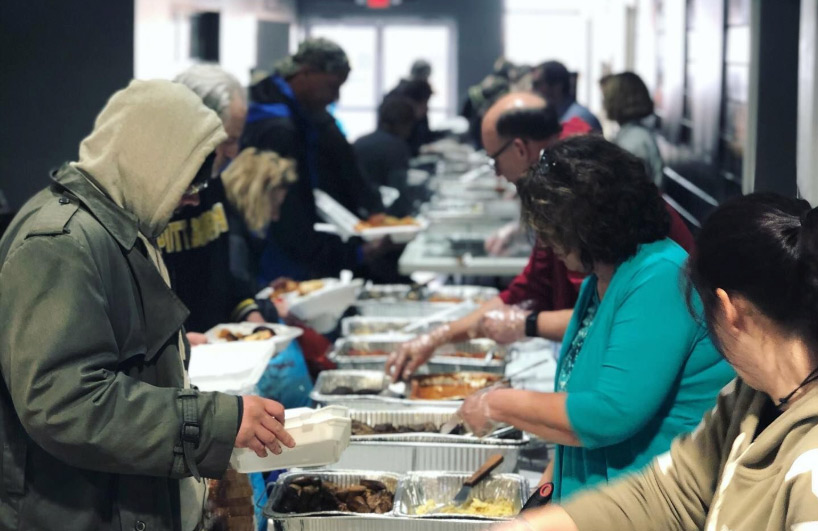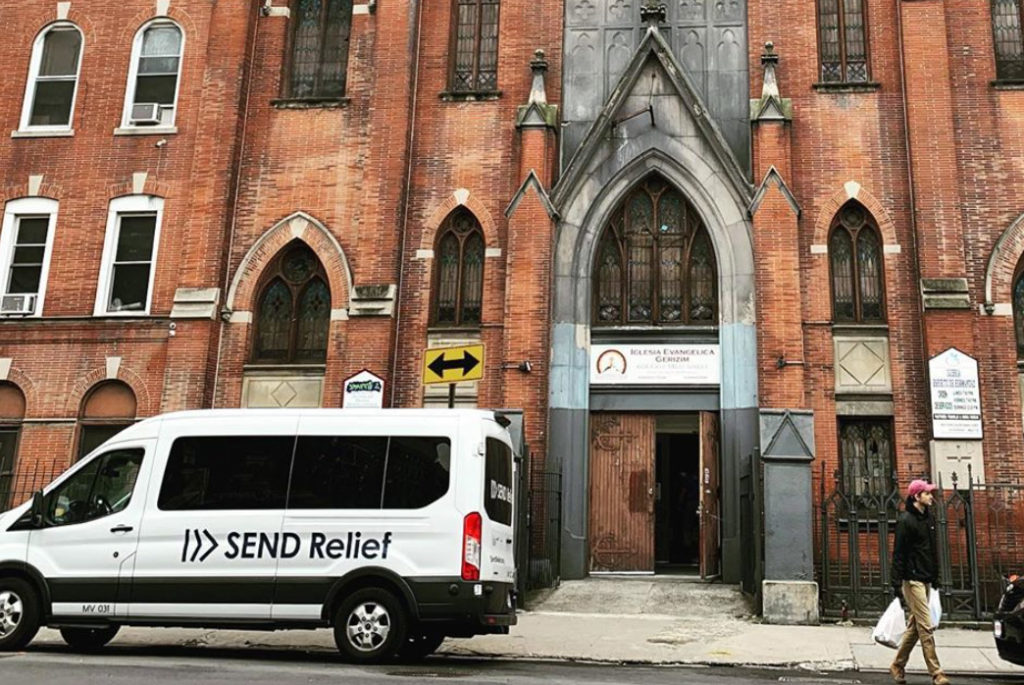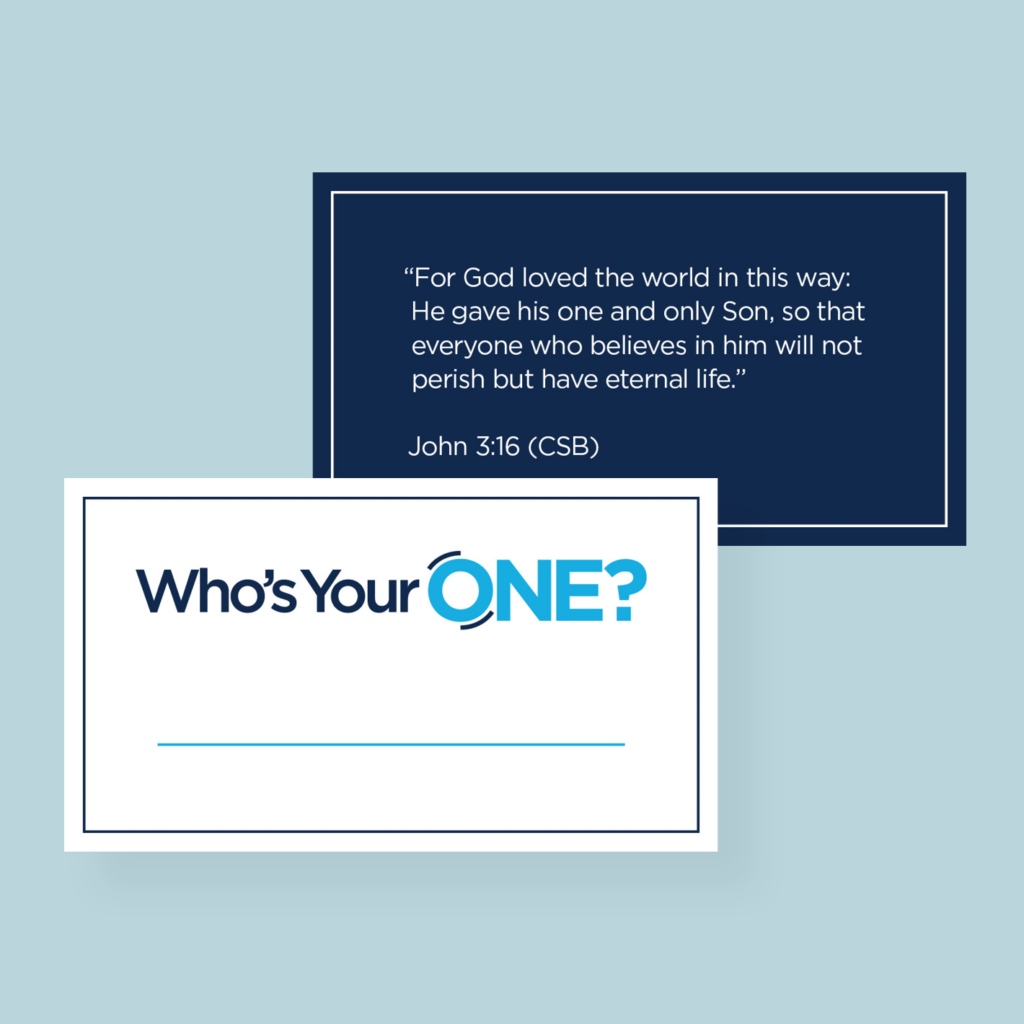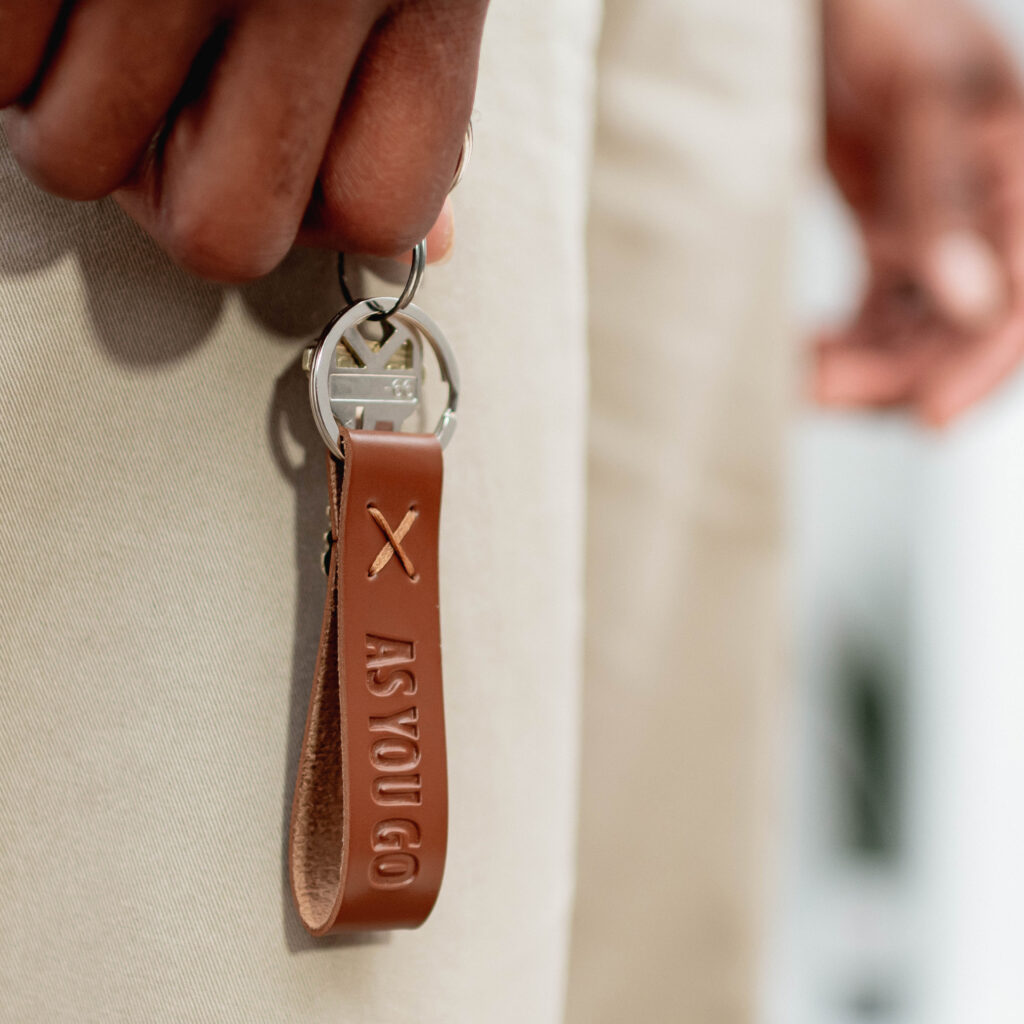By Brandon Elrod
ALPHARETTA, Ga.—Anxiety in the midst of the COVID-19 crisis continues to mount, but Southern Baptists across the United States are determined to respond and meet needs.
Taylor Field, a pastor and Send Relief missionary in New York City, has seen concern build over the last couple of months.
“We are in a densely populated area. I was amazed at the level of concern and anxiety with those who are most vulnerable, those who don’t have access to medical care and those who don’t have a place to stay,” Field said. “It dominated the conversation weeks ago, and it’s exacerbated now with the restrictions that have been put in place.”

Taylor Field, a pastor, leader of Graffiti Ministries and a Send Relief missionary in New York City, has been ministering in New York City as anxiety related to the Coronavirus mount. Health and safety guidelines have led them to adjust the way they minister to the vulnerable in their neighborhood, but they continue feeding and sharing the gospel. NAMB photo.
New Yorkers have been told to prepare for a possible order to shelter in place by the city’s mayor. Field’s team has already made adjustments to how they minister and will continue to do so day-by-day as new guidelines and restrictions go into effect.
One example of those changes is transitioning from organized sit-down meals to grab-and-go meals for those in need. They also set up different tables around their city block where people can receive Bibles, have spiritual conversations and see social distancing exemplified by volunteers.
“Social distancing does not mean disengaging,” Field said. “We have an opportunity as a church. Let’s make those connections and engage with people. We’ve had events canceled. So, we have more time to make connections and engage with those who have needs.”
The Send Relief ministry center in Kentucky has sent out supplies to assist other ministry centers across the nation, including 6,000 meals to New York City so they could provide for people who are under quarantine or are restricted to confinement in some way.

The Send Relief ministry center in Kentucky has sent out supplies to assist other ministry centers across the nation, including 6,000 meals to New York City so they could provide for people who are under quarantine or are restricted to confinement in some way. Photo by Taylor Field.
In Pittsburgh, the Send Relief ministry center has made similar changes to their practice of distributing meals, transitioning their every-other-week Sunday night meals into drive through or walk through distribution.
“We’re going to get strategic and make sure big crowds aren’t gathering in our building at one time, to make sure we’re responsible while at the same time distributing food to people in need,” said Rob Wilton, the North American Mission Board’s (NAMB) Send City Missionary who provides oversight to Send Relief’s ministry activity in the city.
Through their connection with Pittsburgh’s food bank, the Send Relief ministry center is also working to deliver groceries to the homes of people who are in need and cannot leave their homes.
Adam Sewell, the Send Relief missionary who oversees the daily operations of the Pittsburgh ministry center, is also connecting with churches that can provide household supplies to pair with the groceries that come from the food bank.
“The nature of this crisis means that our response as Southern Baptists is going to be localized to the needs of specific communities,” said Bryant Wright, president of Send Relief. “We are looking to lead people to love their neighbors well by staying inside current health guidelines while they are meeting needs.”

In Pittsburgh, the Send Relief ministry center has made changes to their practice of distributing meals to those in need, transitioning their every-other-week Sunday night meals into drive through or walk through distribution. They provided 120 meals to 60 people on Sunday, March 15, allowing visitors to take two meals with them. Photo submitted by Rob Wilton.
On Thursday (March 12), the Centers for Disease Control and Prevention (CDC) reached out to Southern Baptist Disaster Relief (SBDR) leadership to discuss engaging Southern Baptist volunteers in response efforts on a nationwide scale.
Sam Porter, the national director for SBDR with the North American Mission Board (NAMB) and Send Relief, said that the CDC would be contacting state emergency management agencies in states where local SBDR directors have the capacity to provide feeding assistance to those in need.
“This is an opportunity for Southern Baptists to be the hands and feet of Jesus, to be the Church,” Porter said. “Local state emergency management agencies will reach out to our national SBDR staff, and we will connect those agencies to the appropriate contacts in their state.”
Some state SBDR teams have already started connecting with local officials and engaging communities
“Every state SBDR team has different connections to the various government agencies within their state,” Porter said. “So, this recommendation from the CDC will help build trust for our Southern Baptist state teams who have acknowledged their availability to respond.”
For Randy Garrett, the SBDR state director for Arkansas Baptists, his team’s connections with the state’s food bank provided an avenue for service from the start. They’ve helped deliver food boxes to Arkansas food bank sites across the state.
“We are delivering food boxes to the schools, and they are getting that food out to their students. Anyone who shows up who is under 18, they’re feeding them,” Garrett said.
They are also delivering food boxes to their state department of health and human services who are then delivering those boxes to peoples’ homes who are quarantined. The connection to the CDC may lead to SBDR and other local church volunteers getting involved in that stage of delivery as well, Garrett said.
State conventions across the United States are eager for their SBDR teams and local churches to engage communities and meet needs in ways that are both compassionate and responsible.
One key issue is the safety of volunteers as well as those they’re trying to help.
“Most of our volunteers are elderly,” Garrett said. “I’m very cautious about how we do things to ensure the safety of our volunteers.”
Porter has emphasized the need for volunteers to stay protected, especially those who are at a higher risk for potential lethal complications related to COVID-19.
“We will all follow CDC guidelines, and I know that all of our state directors care for and will prioritize the safety of their volunteers,” Porter said. “We are always discussing ways to keep people safe, and that will mean that we need younger volunteers to step up and engage as well.”
Along with the need to stay physically healthy in the middle of this crisis, Field also emphasized a need to stay spiritually and emotionally healthy.
“We’ve realized that this is probably not going to be a sprint. It’s going to be a marathon for Christian leaders and pastors,” Field said. “So, it is important for people to think about self-care. The rhythm of rest and work still holds because this is going to be a long haul, and people need to remember that.”
Brandon Elrod writes for the North American Mission Board.
Published March 18, 2020




